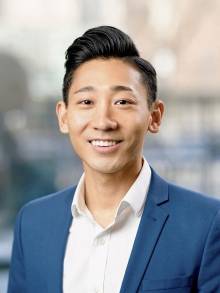Royce Nitta
MPA in Public & Nonprofit Management & Policy
-
2019

Can you tell us a bit about your job responsibilities?
As Strategic Initiatives Manager, I sit at the intersection of business strategy, human-centered design, and social innovation. In my role, I oversee the development and implementation of strategic innovation initiatives aimed at increasing patient diversity, advancing health equity, and building new pathways to high-quality cancer care. Doing this work requires me to be a bit of a shape-shifter and fluid with my roles and responsibilities. At Memorial Sloan Kettering, we refer to these as our different "hats." One day I may need to wear my "strategy" hat to think about what the next 1, 5, and 10 years might look like and develop key strategies with senior leaders. On other days, I'll have my "operations and logistics" hat on, diving deep into processes and workflow to implement and launch new initiatives, products, and services.
Please describe why you chose NYU Wagner for graduate school?
What really convinced me to attend Wagner was the curriculum, diverse student population, and the professors/staff. One of the biggest differences I see between a Wagner grad and other MPA grads is that we have a breadth of knowledge and skills that span far beyond our specialization. During my time at Wagner, I was pushed to take a variety of courses across different fields and topics and to build relationships with my peers and mentors. I attribute this to my success in healthcare, which I did not specialize in. A Wagner education gives you a rare opportunity to build a unique, impact-driven career path for yourself that goes beyond what a traditional MPA program might offer.
Please describe what impact you hope to make through your career and/or organization?
My one hope for my career–one I think many of us at Wagner share–is to know that my work is helping people live full, authentic, and dignified lives. At MSK, I am motivated by the opportunities I have to address healthcare disparities and have focused my work on tackling these issues head-on, through innovative programs and services that go beyond the basic understanding of what cancer and health care should be to address the historical barriers and determinants that have prevented all people from receiving the care they deserve.